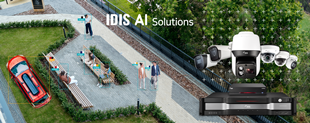The Bag-Intel consortium brings together technology providers and customs agencies to solve customs and border control challenges by targeting specific bags needing manual inspection. All bags will be automatically screened for narcotics between unloading from the aircraft and baggage reclaim area. The results of the screening will be combined with data to identify which luggage should be investigated further.
Smiths Detection’s algorithm will be developed by leveraging a combination of material discrimination, similar to that used in explosives detection, as well as shape-based, deep learning, which is used for weapons detection. Smiths Detection is an industry leader in the development and application of smart, automatic detection algorithms. Advances in AI-based algorithms have enabled real-time, automatic identification of a fast-growing list of prohibited items. By framing any suspect items, image analysts can make faster, more accurate decisions which increases detection levels while maintaining the necessary flow of passengers and goods. Initially, the algorithm will be designed for the hold baggage and air cargo screening system Hi-Scan 10080 XCT.
Smiths Detection Science and Technology Director, Glenn Tracey, commented: “Smiths Detection is committed to advancing the uptake of digital solutions for everyday detection needs and being part of this consortium is another example of this. The development of the narcotics detection algorithm aligns perfectly with work that we are already doing in this area and will be an excellent addition to the Icmore family. Most importantly, working closely with our partners is a positive step in supporting the ongoing fight against narcotics and making the world a safer place.”
Coordinated by Legind Technologies (Denmark), key members of the Bag-Intel consortium include research institutes, universities and other technology providers. In addition to the innovative bag tracking, they aim to deliver a digital twin for visualising, testing, and optimising the Bag-Intel solution, and a sustainable business model and deployment plan for its Pan-European uptake. In this context, customs agencies from Denmark, Estonia, Greece, Italy and Spain will represent the End User perspective.
















